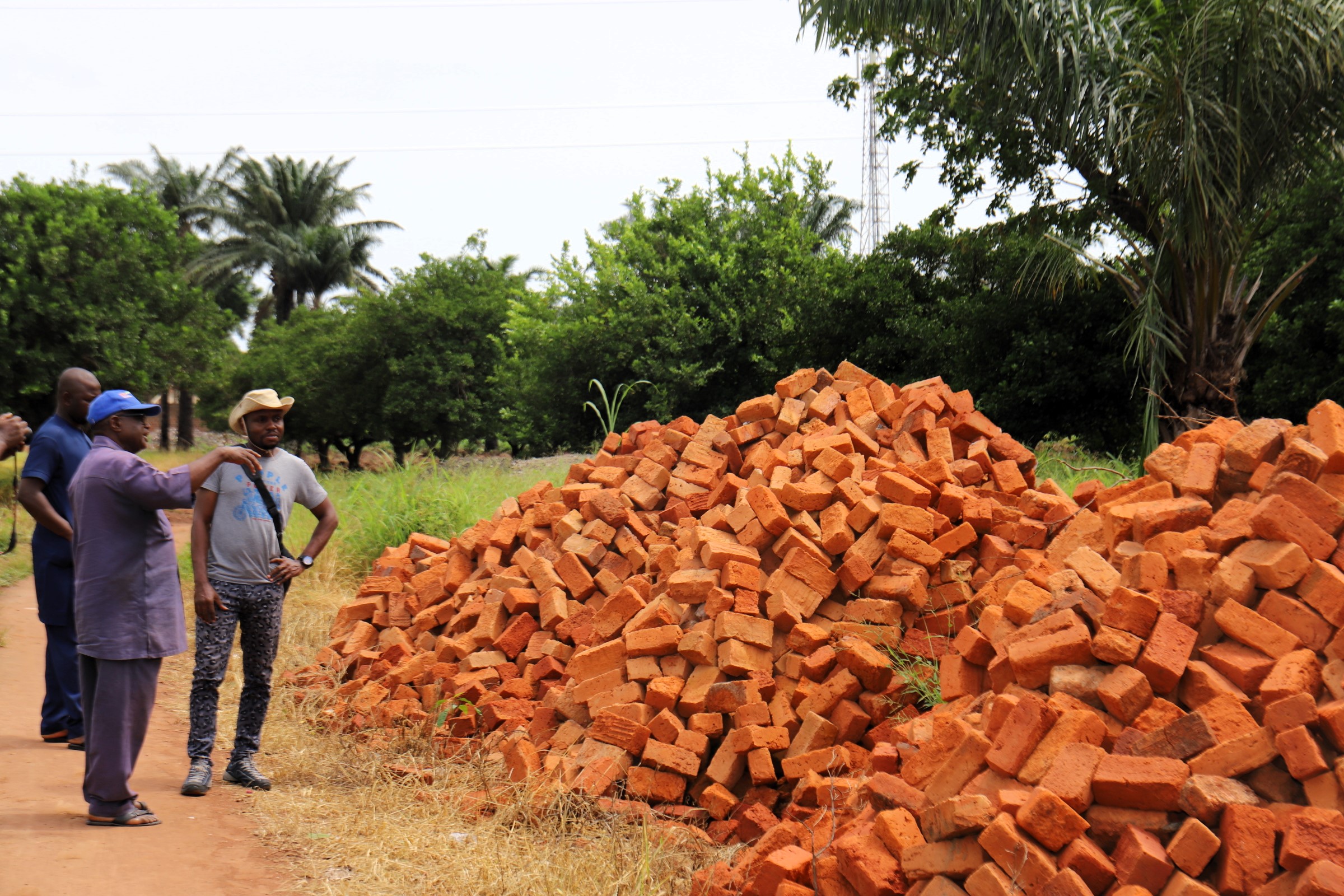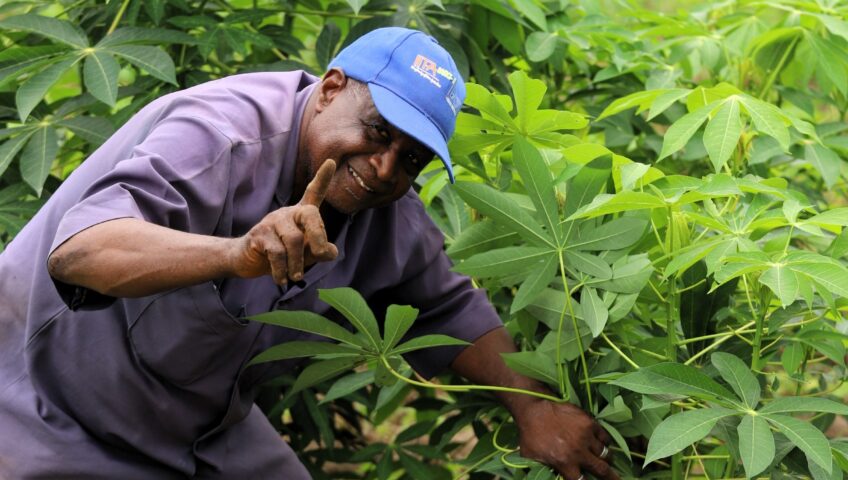Sir Kanji Ubullaun, a 70-year-old retired civil servant in Benue state, had just returned from the plot of land where he was planning to build a new house when the media team from the Sasakawa Africa Association and BASICS-II project drove into his compound at Mbakaa, Gwer Local Government Area of Benue state.
During the exchange of pleasantries, his phone rang and after listening to the caller for a while, the septuagenarian, speaking in the Tiv language, told the caller to call him back in the evening, saying that he was not happy with how the land clearing was being delayed.
Sir Ubullaun later disclosed that the land he was talking about was the site where he was planning to build a new house majorly from the proceeds of his cassava stem business. He said he was eager to start work on the site.
His words: “That house you heard me talking about on the phone is one of the things I have gained from working with BASICS. I am building the house from the money I’m making from the sales of certified cassava stems”
Sir Ubullaun joined the cassava seed business in 2015 as a Village Seed Entrepreneur (VSE) during the first phase of the Building an Economically Sustainable Integrated Cassava Seed syem (BASICS) project. He continued as a Cassava Seed Entrepreneur (CSE) when the second phase of the project (BASICS-II) took off in 2020. He recalled that he was almost retiring from civil service when the BASICS project, through the Catholic Relief Services (CRS), introduced him to cassava seed entrepreneurship.
Until he was led into the lucrative world of cassava seed business, the father of six farmed on a subsistence basis.
His words: “I was only farming at the subsistence level but BASICS impressed it on me that farming is a business,” he said. “They then introduced me and other farmers around to the cassava seed business. Before then, I didn’t know you could sell stems and make so much money. In the first year, I made N60,000 selling stems. I was even comfortable selling stems alone. I didn’t sell the roots that year. I kept some for home consumption and gave out others.”
He disclosed that he had expanded his fields and acquired properties including a car.
“Today, because I have been able to expand the size of my fields, I am making money from both stems and roots. Three years ago, I bought a car from the stem sales. That car has made movement easy for me. I had a bus but it became old and I needed to leave it for carrying goods. But with the car now, I can easily travel anywhere to see my children in Makurdi and to run other business errands. From the money I am making this season, apart from the building, I am cultivating five hectares of rice.”
A visit to the building site showed that Sir Ubullaun had purchased building materials such as sharp sand, gravel and blocks. He explained that even if the money he makes this year does not complete the house, he would complete it next year as he targets to supply up to 2000 bundles in 2025.

The farmer pointed out that he was not the only beneficiary of the cassava seed system development initiative, explaining that as a result of the cassava seed entrepreneurship, farmers in his community who knew nothing about improved cassava varieties, were now full users of improved varieties. “Before BASICS came, we just shared stems among ourselves but the programme came and changed all that. Now, I am making money from cassava stems and farmers are getting quality stems of improved varieties to plant.
Another benefit of his presence in the community is that his farm offers an opportunity to demonstrate good agronomic and weed management practices which he learnt from the seed production training. He has been able to step down the training and some farmers were adopting the technique to tackle weeds on their farms.
He said: “You know, most of us were doing subsistence, so we didn’t care much about weed control, but as we started the project, they pressurized us to keep our fields weed-free and follow good practices like spacing and so on. Today, all of us who underwent that training apply that same mindset to all our farming activities.”
Despite selling a bundle of stem at N2000 in an area where road side sellers make it available for N1000 or less, Sir Ubullaun said he still gets more buyers because “there is a lot of difference between a certified seed producer and a non-certified seed producer from anywhere. Our stems are certified by the National Agricultural Seed Council (NASC), so the quality is guaranteed to be true to type, disease-resistant, of improved varieties and high yielding.”
According to the CSE, there is much room for more cassava seed entrepreneurs. “Right now, I don’t have stems for sale anymore and people are still asking. Sometimes we get demands of up to 2000 or 5000 bundles, and we struggle to supply. So, we need more stems and more certified cassava seed entrepreneurs.”

